Politics
Trump to rename Department of Defence the ‘Department of War’
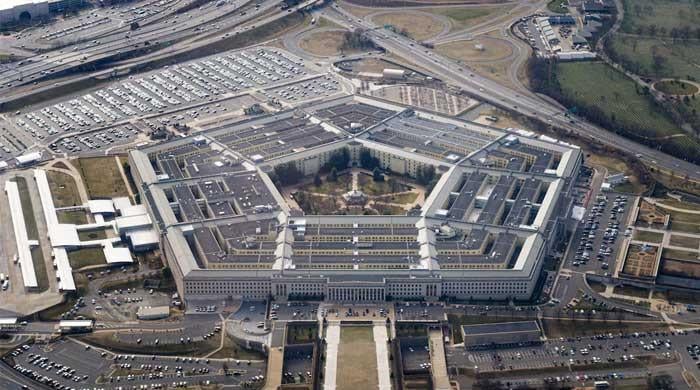
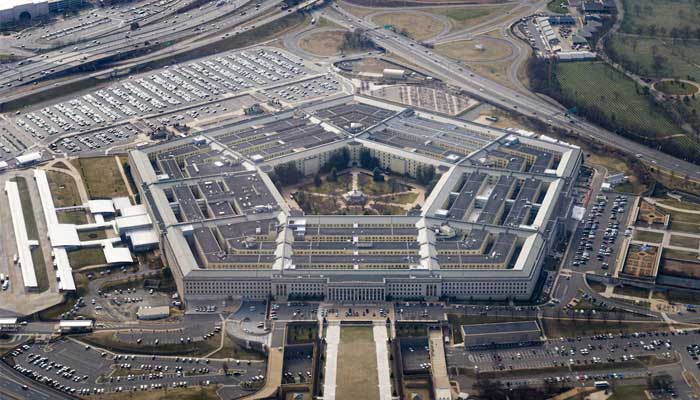
- Congressional approval needed, but Republicans unlikely to oppose.
- Critics argue name change is costly and unnecessary distraction.
- Move would put Trump’s stamp on govt’s biggest organisation.
US President Donald Trump plans to sign an executive order on Friday to rename the Department of Defence the “Department of War,” a White House official said on Thursday, a move that would put Trump’s stamp on the government’s biggest organisation.
The order would authorise Defence Secretary Pete Hegseth, the Defence Department and subordinate officials to use secondary titles such as “Secretary of War,” “Department of War,” and “Deputy Secretary of War” in official correspondence and public communications, according to a White House fact sheet.
The move would instruct Hegseth to recommend legislative and executive actions required to make the renaming permanent.
Since taking office in January, Trump has set out to rename a range of places and institutions, including the Gulf of Mexico, and to restore the original names of military bases that were changed after racial justice protests.
Department name changes are rare and require congressional approval, but Trump’s fellow Republicans hold slim majorities in both the Senate and House of Representatives, and the party’s congressional leaders have shown little appetite for opposing any of Trump’s initiatives.
The US Department of Defence was called the War Department until 1949, when Congress consolidated the Army, Navy and Air Force in the wake of World War Two. The name was chosen in part to signal that in the nuclear age, the US was focused on preventing wars, according to historians.
Changing the name again will be costly and require updating signs and letterheads used not only by officials at the Pentagon in Washington, D.C., but also military installations around the world.
An effort by former President Joe Biden to rename nine bases that honored the Confederacy and Confederate leaders was set to cost the Army $39 million. That effort was reversed by Hegseth earlier this year.
The Trump administration’s government downsizing team, known as the Department of Government Efficiency, has sought to carry out cuts at the Pentagon in a bid to save money.
“Why not put this money toward supporting military families or toward employing diplomats that help prevent conflicts from starting in the first place?” said Democratic Senator Tammy Duckworth, a military veteran and member of the Senate’s Armed Services Committee.
“Because Trump would rather use our military to score political points than to strengthen our national security and support our brave servicemembers and their families – that’s why,” she told Reuters.
Long time in the making
Critics have said the planned name change is not only costly, but an unnecessary distraction for the Pentagon.
Hegseth has said that changing the name is “not just about words — it’s about the warrior ethos.”
This year, one of Trump’s closest congressional allies, Republican US House of Representatives Oversight Committee Chair James Comer, introduced a bill that would make it easier for a president to reorganise and rename agencies.
“We’re just going to do it. I’m sure Congress will go along if we need that … Defence is too defensive. We want to be defensive, but we want to be offensive too if we have to be,” Trump said last month.
Trump also mentioned the possibility of a name change in June, when he suggested that the name was originally changed to be “politically correct.”
But for some in the Trump administration, the effort goes back much further.
During Trump’s first term, current FBI Director Kash Patel, who was briefly at the Pentagon, had a sign-off on his emails that read: “Chief of Staff to the Secretary of Defense & the War Department.”
“I view it as a tribute to the history and heritage of the Department of Defence,” Patel told Reuters in 2021.
Politics
UAE targets online predators and data misuse with child digital safety law
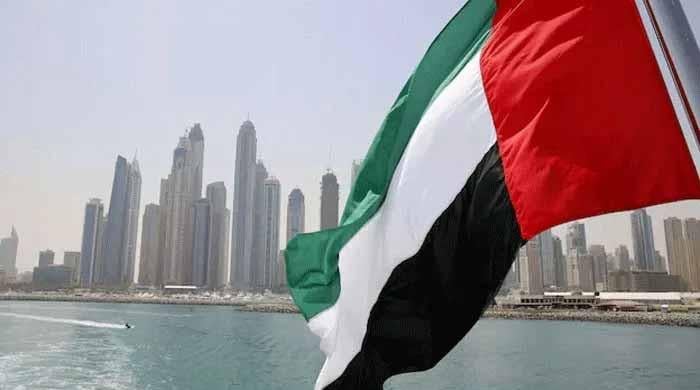
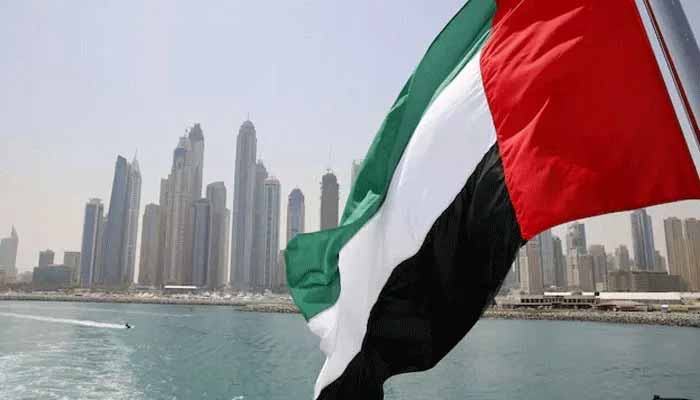
DUBAI: The United Arab Emirates (UAE) has introduced a new federal law aimed at protecting children from online predators, data misuse and harmful digital practices, signalling a tougher global approach to child safety in the digital age.
The legislation seeks to prevent strangers from anywhere in the world from accessing, tracking or interacting with children online, particularly through the collection and use of personal data such as a child’s interests, online behaviour and abilities.
Under the decree-law, digital platforms are prohibited from collecting, processing or sharing the personal data of children under the age of 13, except in limited cases such as educational or health-related services. Children are also barred from creating accounts or accessing online games and digital activities that involve gambling or betting with money.
The law applies to digital platforms and internet service providers operating in the UAE or targeting users in the country, including social media, messaging apps, online gaming platforms, streaming services, search engines and e-commerce websites.
It requires platforms to introduce default privacy settings, age-verification systems, content filtering and age-rating tools, while internet service providers must activate content controls and ensure parental consent for children’s internet use.
A Child Digital Safety Council, chaired by the Minister of Family, has been established to coordinate policy, legislation and awareness campaigns on emerging digital risks.
The decree forms part of the UAE’s broader social policy agenda, following the country’s declaration of 2026 as the Year of the Family, reflecting a wider push to strengthen family and child protection frameworks in an increasingly digital world.
Politics
Zelenskiy to hold high-stakes talks on land, security with Trump on Sunday
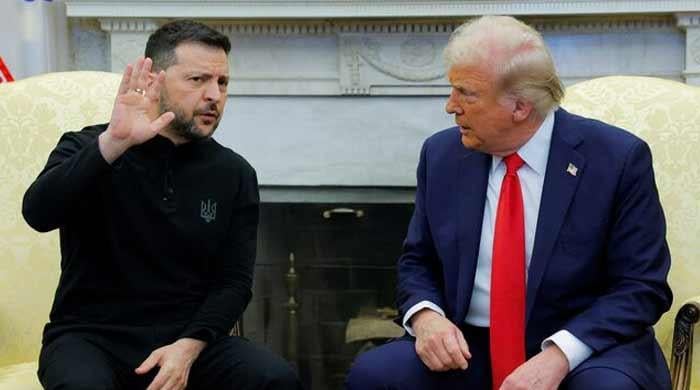
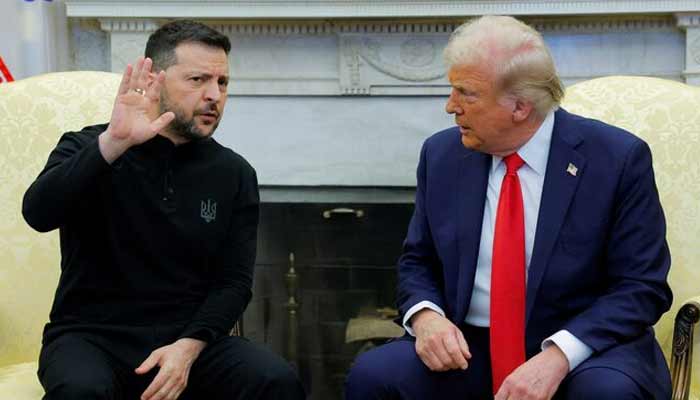
- Ukraine seeks deals to prevent any further Russian aggression.
- Peace deal, security guarantees draft “almost” at 90%: Zelenskiy.
- Zelenskiy hints raising territorial, nuclear plants issues during meeting.
Ukrainian President Volodymyr Zelenskiy will discuss territorial issues, the main stumbling block in talks to end the war, with US President Donald Trump in Florida on Sunday, as a 20-point peace framework and a security guarantees deal near completion.
Announcing the meeting, Zelenskiy said that “a lot can be decided before the New Year,” as Washington continues to drive efforts to end Russia’s full-scale war in Ukraine, Europe’s deadliest conflict since World War Two.
“As for the sensitive issues: we will discuss both Donbas and the Zaporizhzhia nuclear power plant. We will certainly discuss other issues as well,” he told reporters in a WhatsApp chat.
Russia wants Ukraine to withdraw from the parts of the eastern Donetsk region that its troops have failed to occupy during almost four years of war, as it seeks full control of the Donbas, comprising the Donetsk and Luhansk regions. Kyiv wants fighting to be halted at current battle lines.
The US, seeking a compromise, proposed a free economic zone if Ukraine leaves the area. It remained unclear how that zone would function in practical terms.
Territorial issues remain a hurdle to negotiations moving forward. Any compromises on territory should be decided by the Ukrainian people in a potential referendum, Zelenskiy said.
The Zaporizhzhia nuclear power plant, Europe’s biggest, is located on the front line and controlled by Russian forces.
Leaders to refine details in US meeting
Zelenskiy added his meeting with Trump aimed to “refine things” in the drafts and discuss potential deals on Ukraine’s economy.
He said he was not ready to say if any deal would be signed during his visit, but Ukraine was open to it.
A security guarantees agreement between Ukraine and the US was “almost ready” and the 20-point plan draft was at 90% completion, Zelenskiy added.
Wary of failed guarantees from allies in the past, Ukraine is seeking robust and legally-binding deals to prevent any further Russian aggression.
The White House did not immediately respond to a request for comment.
Trump, who has at times expressed frustration with the slow pace of progress in the negotiations, previously suggested that he would meet with Zelenskiy if he felt that a major diplomatic advance was possible.
European leaders might join the talks online, according to Zelenskiy. On Friday, he discussed “significant progress” in peace efforts with Finland’s President Alexander Stubb.
Russian demands
It was not clear which peace plan proposals Moscow would be willing to accept.
Putin’s foreign policy aide, Yuri Ushakov, spoke with members of the Trump administration after Moscow received US proposals about a possible peace deal, the Kremlin said on Friday.
When asked how Moscow viewed the documents, Kremlin spokesman Dmitry Peskov said he did not want to comment as Russia felt making remarks in public could undermine the negotiations.
Russia’s Kommersant newspaper reported that Putin told some of Russia’s top businessmen that he might be open to swapping some territory controlled by Russian forces elsewhere in Ukraine, but that in exchange he wanted the whole of the Donbas.
Even as the talks proceeded, Russia continued hammering Ukraine’s energy infrastructure and stepped up attacks on the southern region of Odesa, the site of Ukraine’s main seaports. On Friday, a Russian attack on the northeastern city of Kharkiv killed two.
Zelenskiy said he planned to raise the issue of placing additional pressure on Russia with Trump.
Politics
Explosion at Alawite mosque in Syria’s Homs kills six
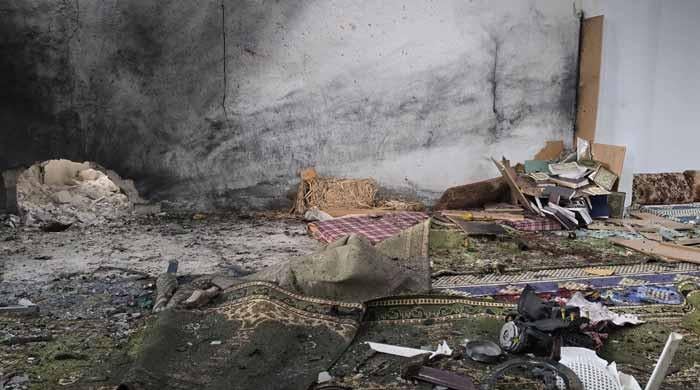
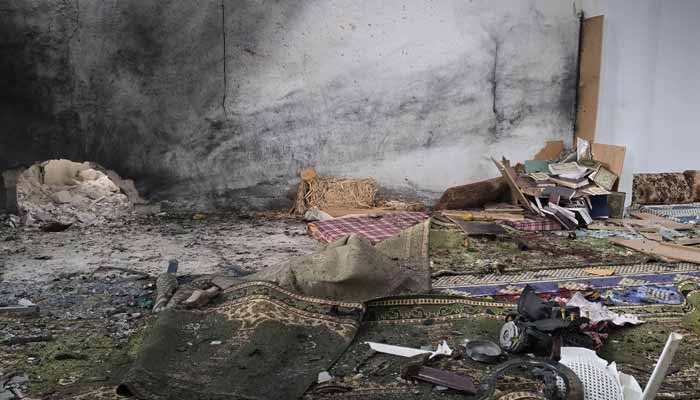
- Syrian interior ministry says 21 others were wounded in explosion
- Local official says blast took place during Friday noon prayers
- Black smoke covered part of mosque, with carpets scattered nearby.
A deadly explosion hit a mosque in a predominantly Alawite area of Syria’s Homs on Friday, said authorities who reported at least six people killed.
“A terrorist explosion targeted the Ali Bin Abi Talib Mosque during Friday prayers in Al-Khadri Street in the Wadi al-Dahab neighbourhood of Homs,” the interior ministry said in a statement, adding that six people were killed and 21 others wounded.
Homs was the scene of heavy sectarian violence during Syria’s civil war.
Syria’s state news agency Sana, which also reported the blast, said its cause and nature were being investigated.
According to the Britain-based Syrian Observatory for Human Rights monitor, it was not immediately clear whether the blast “was caused by a suicide attack or an explosive device”.
A local security source in Homs told AFP on condition of anonymity that the explosion may have been caused by “an explosive device placed inside the mosque”.
A resident of the area, requesting anonymity out of fear for his safety, told AFP people “heard a loud explosion, followed by chaos and panic in the neighbourhood”.
“No one dares to leave their house, and we are hearing ambulance sirens,” he added.
Sana published photos from inside the mosque, one of which showed a hole in a wall.
Black smoke covered part of the mosque, with carpets and books scattered nearby.
Since Assad’s ouster in 2024, the Observatory and ordinary Syrians in Homs have reported kidnappings and killings targeting members of the minority community.
Syria’s coastal areas saw the massacre of Alawite civilians in March, with authorities accusing armed Assad supporters of sparking the violence by attacking security forces.
A national commission of inquiry said at least 1,426 members of the minority community were killed at the time, while the Syrian Observatory for Human Rights monitor put the toll at more than 1,700.
-

 Fashion1 week ago
Fashion1 week agoIndonesia’s thrift surge fuels waste and textile industry woes
-

 Tech1 week ago
Tech1 week agoT-Mobile Business Internet and Phone Deals
-

 Business1 week ago
Business1 week agoBP names new boss as current CEO leaves after less than two years
-

 Sports1 week ago
Sports1 week agoPKF summons meeting after Pakistani player represents India in kabaddi tournament
-
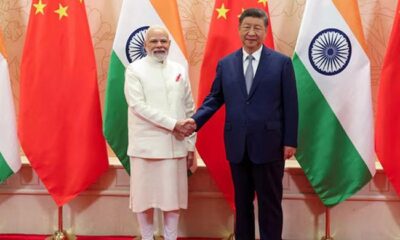
 Entertainment1 week ago
Entertainment1 week agoIndia streamlines visa rules in boost for Chinese professionals
-
Sports6 days ago
Alabama turned Oklahoma’s College Football Playoff dream into a nightmare
-

 Sports1 week ago
Sports1 week agoUWCL grades for all 18 teams: Leuven get A+; Barça an A-, PSG fail
-

 Entertainment1 week ago
Entertainment1 week agoRadiation fears rise after cracks found in $2 billion Chernobyl shield






